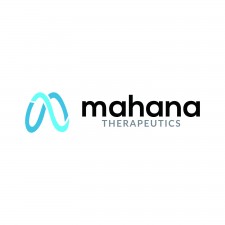Mahana Therapeutics Enters Into Licensing Agreement With King's College London for Innovative Digital Therapeutic to Treat Gastrointestinal Condition

SAN FRANCISCO and LONDON, January 10, 2020 (Newswire.com) - Mahana Therapeutics, a digital therapeutics company reimagining the treatment of chronic diseases, today announced that the Company has entered into a licensing and collaboration agreement with King’s College London, a leading research university and one of the oldest and most prestigious universities in England. Mahana has acquired a worldwide exclusive license to an innovative digital therapeutic for the treatment of irritable bowel syndrome (IBS).
Professor Rona Moss-Morris, Head of Psychology Department, Institute of Psychiatry, Psychology & Neuroscience (IoPPN) at King's College London led the development of the digital program in collaboration with Trudie Chalder, Professor of Cognitive Behavioural Psychotherapy and Dr. Alice Sibelli both also from King’s, Hazel Everitt, GP and Professor of Primary Care Research, Faculty of Medicine, University of Southampton, and a broad multi-university team. “We spent over 18 years developing and clinically testing a personalized digital CBT program for adult IBS patients,” said Rona Moss Morris. “We believe our multi-center, randomized controlled trial (RCT) of 558 patients is the largest clinical trial ever conducted demonstrating the clinical safety and efficacy of a digital CBT product for IBS.” The trial, with results published in 2019 prestigious medical journal Gut[1], demonstrated that web-based CBT showed substantial and durable IBS symptom severity improvements versus treatment as usual (i.e. doctors visits alone) and also led to reductions in anxiety and depression in patients over three, six and twelve-month time periods.
“The digital era has allowed us the opportunity to explore new ways to reach patients and provide them with access to psychological-based therapies that help control symptoms in a more convenient way. We are thrilled to partner with Mahana Therapeutics. Mahana shares our vision to provide patients in the U.K. and abroad with clinically and cost-effective treatments for gastrointestinal diseases and they have been an amazing collaborative partner,” said Professor Moss-Morris.
“This is the perfect union of our vision at Mahana plus a leading academic institution’s desire to bring world-leading research into the hands of patients,” said Robert Paull, co-founder and CEO of Mahana Therapeutics. “The digital therapeutic developed by Professor Moss-Morris and her colleagues at King’s College London is best-in-class and supported by extensive clinical data. We are excited to bring this important treatment option to patients in the United Kingdom, United States and globally.”
About Mahana Therapeutics
Mahana is focused on developing digital therapeutics for children and adults living with gastrointestinal diseases and conditions. The company is a diverse mix of healthcare and technology entrepreneurs, gastroenterologists, psychologists, behavioral scientists, and passionate patients looking to improve the health and quality of life of people living with chronic gastrointestinal conditions. Mahana is based in San Francisco, California and London, England and is backed by leading venture capital firms Lux Capital and JAZZ Venture Partners. For more information please visit www.mahanatx.com or email press@mahanatx.com.
About King’s College London and the Institute of Psychiatry, Psychology & Neuroscience
King's College London is one of the top 10 UK universities in the world (QS World University Rankings, 2018/19) and among the oldest in England. King’s has more than 31,000 students (including more than 12,800 postgraduates) from some 150 countries worldwide, and some 8,500 staff. King’s has an outstanding reputation for world-class teaching and cutting-edge research. In the 2014 Research Excellence Framework (REF), eighty-four per cent of research at King’s was deemed ‘world-leading’ or ‘internationally excellent’ (3* and 4*).
The Institute of Psychiatry, Psychology & Neuroscience (IoPPN) at King’s College London is the premier centre for mental health and related neurosciences research in Europe. It produces more highly cited publications in psychiatry and mental health than any other university in the world (Scopus, 2016), with 31 of the most highly cited scientists in this field. World-leading research from the IoPPN has made, and continues to make, an impact on how we understand, prevent and treat mental illness and other conditions that affect the brain. www.kcl.ac.uk/ioppn @KingsIoPPN
About University of Southampton
The University of Southampton drives original thinking, turns knowledge into action and impact, and creates solutions to the world’s challenges. We are among the top 100 institutions globally (QS World University Rankings 2019). Our academics are leaders in their fields, forging links with high-profile international businesses and organisations, and inspiring a 24,000-strong community of exceptional students, from over 135 countries worldwide. Through our high-quality education, the University helps students on a journey of discovery to realize their potential and join our global network of over 200,000 alumni. www.southampton.ac.uk
[1] Everitt HA, et al. Gut 2019;0:1–11. doi:10.1136/gutjnl-2018-317805
Source: Mahana Therapeutics
